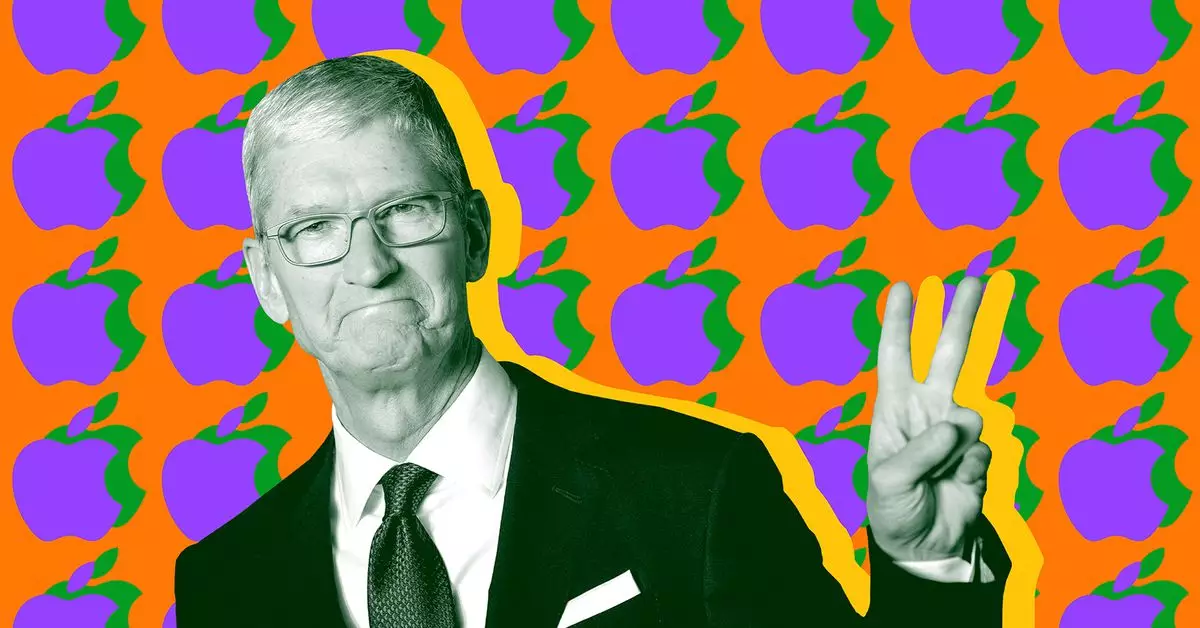In the ever-evolving relationship between the technology sector and political landscapes, we witness a remarkable trend: major players in tech are increasingly engaging in political contributions. Recent news highlights a significant donation made by Apple CEO Tim Cook to President-elect Donald Trump’s inauguration committee, setting a notable precedent for other tech executives. This move appears not only to support the new administration but also signifies the lengths to which tech leaders will go to cultivate favorable relations with policymakers.
Tim Cook’s donation isn’t merely a transaction; it underscores the complex interplay of personal connection and corporate strategy within the tech industry. Cook has maintained a personal rapport with Trump that arguably surpasses other executive relationships in Silicon Valley. Their interactions during Trump’s presidency laid the groundwork for a continued friendship, one that Cook seems eager to leverage for Apple. Anecdotal evidence suggests that he has been proactive in fostering this bond, including congratulatory gestures after Trump’s electoral victory and face-to-face meetings at luxury venues like Trump Tower and Mar-a-Lago.
Crucially, this friendship is reflective of a broader trend among tech leaders wishing to align themselves with the new administration for both personal and corporate advantages. As Cook joins the ranks of other notable figures, such as OpenAI CEO Sam Altman and Jeff Bezos of Amazon, it’s evident that the relationship is mutually beneficial—providing executives with access to power, while policymakers gain insights into the rapidly evolving tech landscape.
While Cook has asserted that his donation stems from a respect for the inauguration as an integral part of American tradition, one cannot help but question the underlying motivations driving such contributions. In many ways, these donations represent a strategy of preemptive goodwill—aiming to foster collaboration between Big Tech and government, an area that has become increasingly fraught with concerns surrounding regulation and oversight.
With industry giants facing scrutiny over privacy, monopolistic practices, and misinformation, securing a seat at the table could provide invaluable influence when navigating legislative challenges. The fact that Apple is “not expected” to make significant corporate contributions could suggest a nuanced approach, favoring individual executive contributions while avoiding the pitfalls often associated with corporate donations.
As the inauguration approaches, the concentration of power in the hands of a few tech leaders becomes increasingly pronounced. The dynamics of these relationships may shape the future of technological innovation and regulation, setting the stage for a unique intersection of Silicon Valley ambitions and political agendas. The long-term impact of such alliances will be closely observed, as industry and politicians work to find common ground in a polarized landscape.
Ultimately, Cook’s involvement in political contributions may represent more than individual choices; it could be the harbinger of a new era in which tech executives are seen as key players in political arenas, influencing policy and practice through their established networks. As we watch the development of these relationships unfold, it will be crucial to analyze the effects on both the tech industry and the governance of the nation.


Leave a Reply